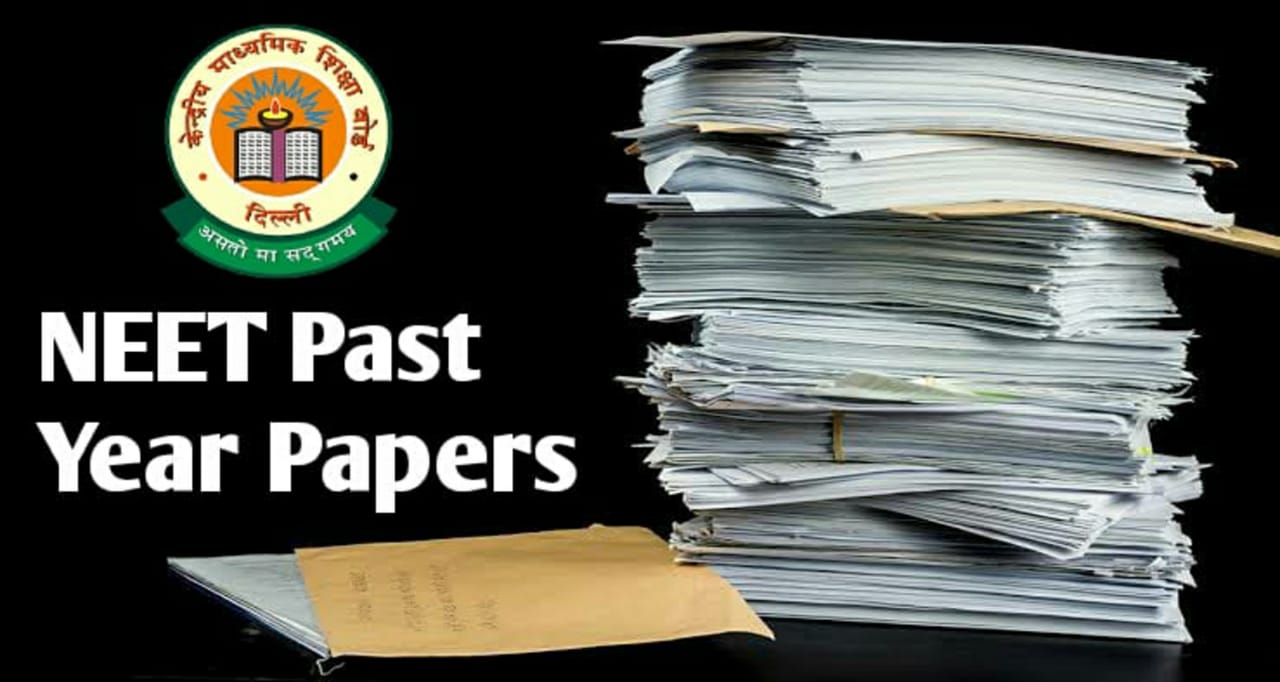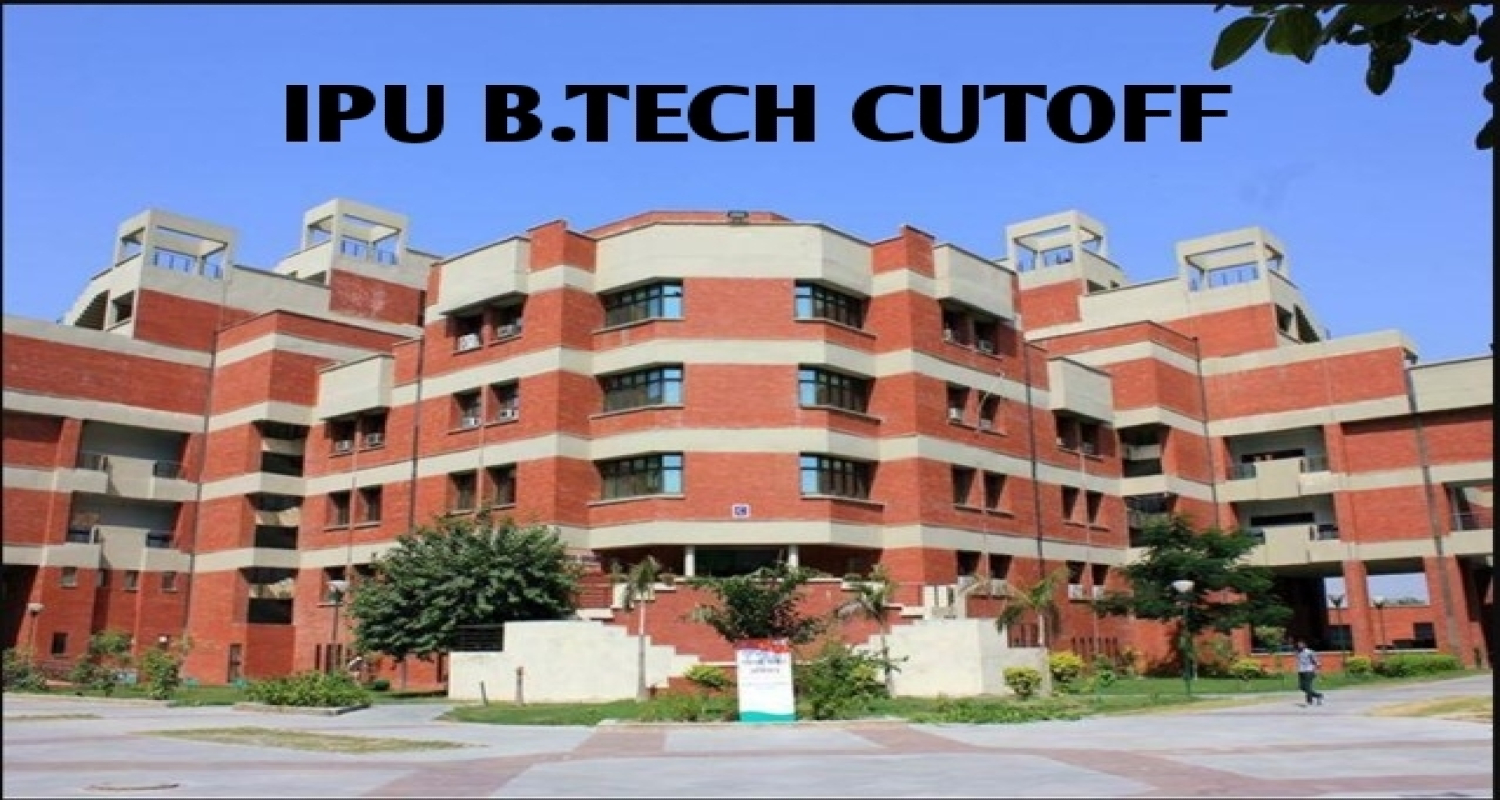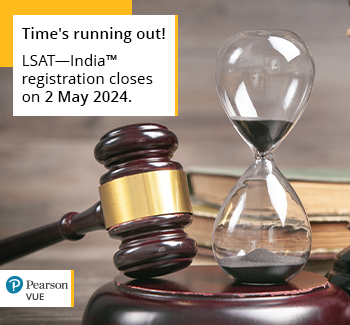NEET Past Year Papers – Download Previous year papers For NEET

NEET Past Year Papers – Download Previous year papers For NEET
Past papers are an important tool for revision, allowing students to check how their revision is going and assess areas for improvement. However, too much of this can lead students to overemphasize the role of the mark scheme in their success.
When you practice questions that are based on concepts that you have studied earlier, you test your ability to apply, innovate and solve problems. This builds the required confidence in you which further helps in your exam.
Know your chances in MCC/State Level Counselling as per your NEET All India Rank, Register Here or call 9310476673/9310486685
Interested in MBBS from Philippines/Nepal? for details call 9310476673/9310486685
Start your NEET Preparation with Best Kota Faculty, Get (Live Zoom classes, Test Series, Recorded Lectures, DPP's and more) + Personalized Mentorship (Strategy Sessions) for NEET for details call 9310476673/9310486685
Solve Past year Papers for better idea of the exact type of Questions: This is a very useful strategy for candidates preparing for NEET without coaching. Solving NEET paper from the previous years will provide the candidates with an idea about the pattern of questions asked in the examination and also help them improve their time-management skills.
Please Find below the NEET Past year Papers that you can Download for free:
NEET 2020 Question Paper with Answer Key
Re-AIPMT (NEET) 2015 Question Paper
AIPMT (NEET) 2015 Question Paper
AIPMT (NEET) 2014 Question Paper
Students can download more NEET Past year Papers here: NEET Past year Papers
This has always been recommended by past year Toppers as well as Coaching Institutes and other NEET experts.
“If you want to secure a good rank in NEET then previous year's question papers plays the same role as the theory section. in-depth analysis of the question papers will also help you judge which topics are important with respect to NEET. You will feel more confident while attempting easy, intermediate and advanced difficulty levels questions after solving previous years question papers of last 10 years” – Mayank Joshi ,Founder Director of Sarvottam Career Institute Kota
“In attempting the paper, the strategy for time management which works best is Chemistry 45 mins, Physics 60 mins, biology 75 minutes. Taking this as a thumb rule they should practice a lot of mocks & previous year NEET papers” - Mr. Saurabh Kumar, Academic Director of Vidyamandir Classes Ltd. (VMC)
The Eligibility Criteria is important for any examination because even if a candidate does not fulfil a single criterion of the eligibility criteria declared for the examination then the candidate is not allowed to appear for the examination or even after appearing for the examination and clearing the same the admission through the examination stands cancelled or void.
The NEET Eligibility Criteria in detail are as follows:
Age limit:
- Candidate should have completed 17 years on or before 31st December 2021. Upper age limit will be 25 years.
Nationality:
- Indian National/NRIs/PIO/OCI and foreign national all are eligible to apply.
Qualification:
- The candidate must have passed class 12th or equivalent from any recognized board.
- Candidate must have passed in Physics, Chemistry, Biology/Biotechnology and English individually with minimum 50% marks.
- For SC/ST marks relaxation is 40% and for PwD marks relaxation is 45%.
One of the key ways of cracking NEET examinations is by developing a thorough understanding of the existing Examination Pattern. Referring to previous year question papers help students do this by providing them the necessary information about syllabus and topics covered in the exam. Previous Year NEET Question Papers also help in determining the weightage of marks allotted to different topics thereby allowing aspirants to draft their preparation strategy focused around those topics.
NEET is a National Level Exam conducted by NTA (National Testing Agency) for those candidates who are interested in the medical field. In early stage of preparation, candidate should know about each and every point of exam pattern. With the help of this exam pattern student will get idea about duration of exam, marking scheme, no. of question, etc.
NEET Exam Pattern Overview:
|
Particulars |
Details |
|
Mode of Exam |
Pen and Paper based |
|
Duration of Exam |
3 hours |
|
Subjects |
|
|
Type of Questions |
MCQ’s |
|
Total Question |
180 |
|
Total Marks |
720 |
|
Negative Marking |
-1 will deducted for wrong answer marking |
|
Language of Exam |
English, Hindi, Assamese, Bengali, Gujarati, Kannada, Marathi, Odia, Tamil, Telugu and Urdu. |
NEET Exam Pattern in Detail:
|
Subjects |
No. of Questions |
Marks per Question |
Distribution of Marks |
|
Physics |
45 |
4 |
45*4 = 180 |
|
Chemistry |
45 |
4 |
45*4 = 180 |
|
Biology (Botany and Zoology) |
90 |
4 |
90*4 = 360 |
|
Total |
180 Question |
|
720 Marks |
NEET Marking Criteria:
|
Marking Criteria |
Correct Answer |
+4 |
|
Incorrect Answer |
-1 |
|
|
Unanswered |
0 |
Note: Candidates are advised not to attempt the multiple answers during the NEET exam as it will cost them negative marking.
Exam Timeline
|
NEET Application Form |
Tentatively 1st week of May to 1st week of July |
|
NEET Admit Card |
Tentatively 2nd or 3rd week of July |
|
NEET Examination |
Tentatively 1st or 2nd week of August |
|
NEET Result and Final Answer Key |
Tentatively 1st or 2nd week of September |
|
NEET Counselling and Admission Procedure |
Tentatively September to November |
About Author
Harshita Nandal
Harshita Nandal has worked as a Creative head in Mitrakshar, University of Delhi. She has done her Graduation from the University of Delhi in English Honours. In her free time, she prefers to play the guitar, take short walks in between work and loves to watch Korean dramas. Currently, she is an author at Educere India to fulfil the desire of her passion for writing.







